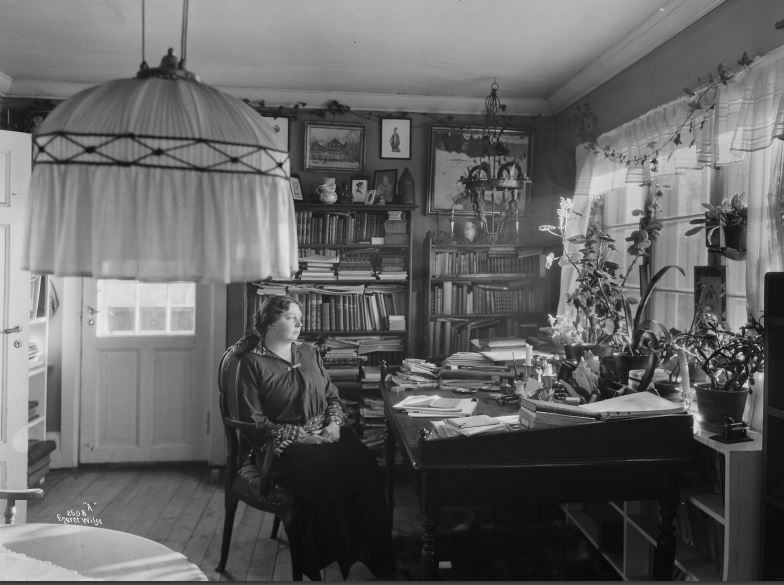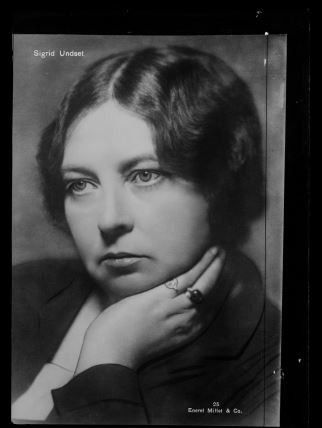
Sigrid Undset
In 1933, Nazi students at more than 30 German universities pillaged libraries in search of books they considered to be "un-German." Among the literary and political writings they threw into the flames were the works of Sigrid Undset.
Which of Sigrid Undset's Works were Burned?
All works published before May 1933
Who was Sigrid Undset?

Norwegian author Sigrid Undset (1882-1949) was awarded the Nobel Prize for Literature in 1928. Her works, including accounts of life in Scandinavia from the Middle Ages to the 1930s—often with feminist themes—are still widely read in many languages. Undset's unconventional novels were banned and burned in part because of her heavy public criticism of the Nazi regime.
Unlike fellow Norwegian and Nobel Prize winner Knut Hamsun, who collaborated with the Germans, Sigrid Undset had an early and often verbalized antipathy to the Nazis. This antipathy grew into an intense hatred after the German occupation of Norway and the subsequent killing of her oldest son. She fled first to Sweden and then to the United States, where she established herself as a writer and lecturer.
Undset returned to Norway after the war, and was awarded the Grand Cross of the Order of St. Olav in 1947 for her courage to speak out against the Nazis before the war.
Critical Thinking Questions
- If Jews were the principal target during the Holocaust, why were books written by non-Jewish authors burned?
- How did the German public react to the book burnings? What were some of the reactions outside of Germany?
- Why do oppressive regimes promote or support censorship and book burning? How might this be a warning sign of mass atrocity?

